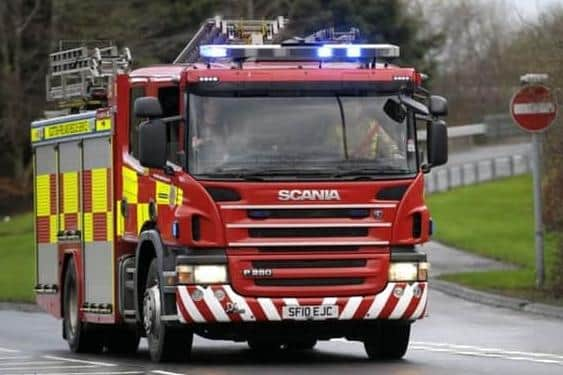SFRS delays new rule on automatic fire alarm attendance in West Lothian
and live on Freeview channel 276
It is set to make a difference in West Lothian where false call outs are higher than average.
Scottish Fire and Rescue Service (SFRS) rules on attending automatic alarms were set to change in April but have now been put back until July, councillors heard.
Advertisement
Hide AdAdvertisement
Hide AdWatch Commander Paul Harvey, the local liaison officer for the SFRS, gave councillors in the Whitburn and Blackburn Local Area Committee a quarterly report of fire statistics for the ward today.


Commander Harvey said the fire service dealt with 36 Unwanted Fire Alarm Signals (UFAS) in the third quarter of 2022 to 2023 in the ward, compared with 48 in the same period the year before.
While the number of false call outs has been dropping following lengthy information campaigns by the service it still remains higher than average in West Lothian.
Call outs are triggered by automatic alarm systems and until the changes are introduced later this year each trigger sends at least two fire engines to the scene under blue light conditions.
Advertisement
Hide AdAdvertisement
Hide AdSFRS launched a consultation two years ago as the number of call outs to false alarms soared. Many of these call outs are triggered by faulty alarm settings but many more have been triggered by wholly innocent things such as cooking, and the use of deodorants and hairspray.
Many, of course, in schools are deliberately triggered.
The SFRS was set to introduce a new policy in April but this has been delayed until July, Commander Harvey told the councillors on Monday.
No reason for the delay was given.
Under the current rules crews are mobilised to an average 28,479 false alarms each year – equating to around 57,000 unnecessary blue light journeys in Scotland posing potential road risks to the public and crews.
The cost of a false call out to the service is around £2,000. In England many fire and rescue services actually bill for the costs of attendance to false alarms.
Advertisement
Hide AdAdvertisement
Hide AdNow under new rules fire control centres will call a premises, which sounds an automatic alarm to check if there is actually a fire or emergency before dispatching firefighters.
This change, which will reduce attendance rates by up to 57 per cent, will now come into effect in July 2023 and will bring Scotland into line with most other UK Fire and Rescue Services.
Hospitals, residential care homes and sleeping risk premises will remain exempt and appliances will continue to be mobilised automatically to any fire alarm activations within these facilities.
On its website the SFRS said: “It is anticipated that 37,524 hours could now be released each year for firefighters to enhance their training – and carry out community safety work, including supporting the most vulnerable to stay safe from fires within the home.”
Advertisement
Hide AdAdvertisement
Hide AdA spokesperson for SFRS confirmed: “The implementation date for the new response was put back to July 1 to allow sufficient time for duty holders to receive guidance and advice in order to help them to reduce Unwanted Fire Alarm Signals (UFAS) and to allow them to prepare ahead of the change.”